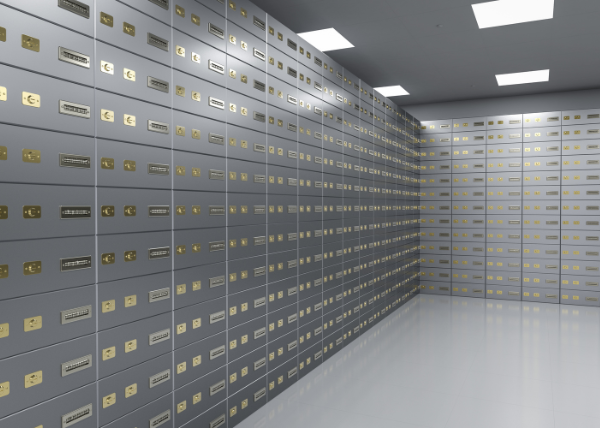Safe deposit boxes are traditionally more secure than home storage. However, you may want to consider whether storing your original estate planning documents and valuables with your local bank is the right choice for you.
In most cases, an original will must be filed with the court to start a probate. Storing your last will and testament in a bank’s safe deposit box seems like a reliable choice for safe storage of such an important document. Sadly, in an environment of increasing bank regulations, doing so can create obstacles to starting estate administration. If your spouse, heir, trustee of your revocable trust, or personal representative (“executor”) is not a co-owner of the bank safe deposit box, he or she may be surprised at how difficult it can be to access the bank safe deposit box. There are also pitfalls to putting someone else’s name on your safe deposit box to avoid the pitfalls, so that may not be the perfect solution either.
For an executor to access the bank safe deposit box to obtain a will that is stored there, they must first obtain a death certificate and sign an affidavit in the presence of a notary that attests to his or her belief that the box holds a will or a trust. This person must also have either the key to the box or pay for the cost of drilling into it. Banking hours and staffing policies may further delay access to the box, and the documents may require approval by the institution’s legal team. The legal team for larger banks is often located in remote out-of-state locations, where they must wade through the rules for many states and develop their regulations accordingly. This can be a slow process and delays or complicates the onset of a valid probate of the will.
If your relative or personal representative lives out of state, that could further bog down starting a probate or distribution of estate assets. An out-of-state personal representative may have a limited amount of time in state to manage and dispose of the decedent’s property and may not be authorized to remove any assets from the safe deposit box until after the court issues Letters Testamentary and a judgment is entered appointing him as personal representative. Wool Landon has successfully obtained access to safe deposit boxes on behalf of out-of-state clients but jumping through regulatory hoops of this kind may result in a lengthy delay and significant additional legal expenses to the estate. Even when your will is a relatively simple document to obtain and prepare, storage in a bank safe deposit box adds expense and complexity. You can avoid the inconvenience and delay by working with your attorney to securely store the original will elsewhere.
Although no one likes dealing with bureaucracy, Wool Landon attorneys and staff are experts at guiding clients through the paperwork before and after death. With our proprietary Action Lists, we help clients organize and safely store their essential information, valuables, and estate planning documents so that they are readily accessible to those who need them, whenever that need may arise.
Paralegal Teagan Roberts also contributed to this blog.

